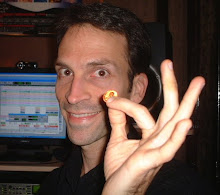First, I recommend reviewing my previous blog entry on the subject of compound interest. That can be a real eye opener for many people. Once you have an idea about how compound interest works, you start to understand how important it is to get the maximum return on your investments, and pay the minimum rate on your debt. Even a one or two percent difference can really add up over time.
If you are trying to make a decision or plan based on alternative possible interest rates and you don't have access to a precise compound interest calculator, just remember the following formula:
72 ÷ annual interest rate = number of years it will take for the balance to double
So, for example, if I invest $2000 at a compounded 6% rate of interest:
72 ÷ 6 = 12
In about 12 years, if I don't add or take out any money and the interest rate remains at 6%, my account balance should hit $4000. You can use the same calculation to estimate how long it will take your debt burden to double, or how long it will take for a given rate of inflation to double the cost of living.
I have been running a little experiment for some time now. In 1994, I put $100 in a credit union share account and resolved to make no more deposits or withdrawals until the account doubled in value. Well, it has been 15 years, and the balance currently stands at $168. Not too impressive, eh? That's because the average interest rate on that account over the past 3 years has been a paltry 1.07%. At that rate, it would take over 67 years for my $100 to double! Actually, my interest rate was slightly better in the '90s, so at the current rate, it should only take another 17 years. But that is still a total of 32 years! The lesson to be learned from this experiment: small differences in interest rates make big differences in results!






1 comment:
This is really helpful, as are all your columns! Thank you. I'm the kind of person who, while not BAD with money, just doesn't like to think about it a lot. Simple ways to think about compound interest are highly useful for musicians like me! Keep up the good work (I found your blog via Derek Sivers).
Post a Comment